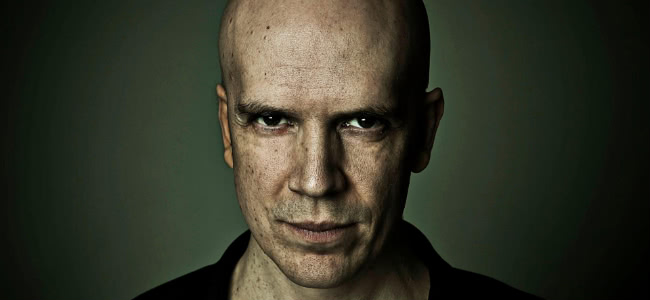The musical personalities of Devin Townsend, whose career has run the gamut from heavy-as-a-really-heavy-thing industrial metal band Strapping Young Land, to epic space operas as a solo artist, are as numerous as the matted dreadlocks that once adorned his Canadian cranium.
With a 25-year musical journey under his belt, Townsend now stands as one of the few true oddball visionaries left in heavy music, most recently culminating in the long-awaited release of Z², the sequel to his 2007 solo album Ziltoid the Omniscient.
In order to get an insight into the ever-evolving mind of one of the most prolific and imaginative figures in rock, we freight-hopped the only conduit we knew would take us right to the epicentre and explored the gear of Devin Townsend.
Going Back to Basics

“[If I could only tour with three pieces of gear], I would bring a Fender Telecaster, I would bring a Princeton amplifier, and I’d bring an analog delay pedal, and I’d probably be good to go, man. I’m more interested in clean sounds than any distorted sound, you know? And there’s something about a Fender clean that works for me.
“The Telecaster I like for many reasons. I like the single coils, I like guitars that are simple, I like unassuming instruments that you can punish. And delays, I think, for me, have become an integral part of my sound. I like to be able to interact with what I’ve done prior. So, I think that between those three, I can find my way around most musical situations.”
The Self-Described “Gear Slut”
“I’m such a slut when it comes to gear. I really like to play with gear, right? But, ultimately the fundamentals of it are always the same. The faces change, in terms of certain components of it, the brands of guitar or whatever, but ultimately I go for three specific things: I go for a heavy metal tone, which is typically a dual rectifier with a clean boost in front of it; I go for a half distorted sound, which is humbuckers on the edge of distortion, maybe middle position, on a two-humbucker Telecaster, with a series of effects pedals and wahs and things; and then the clean sound, which is rooted in a Fender type of clean sound with delays on it.
“So other than the specifics of how that is achieved, those three fundamental aspects of it are always and have always been present.”
The Early Days
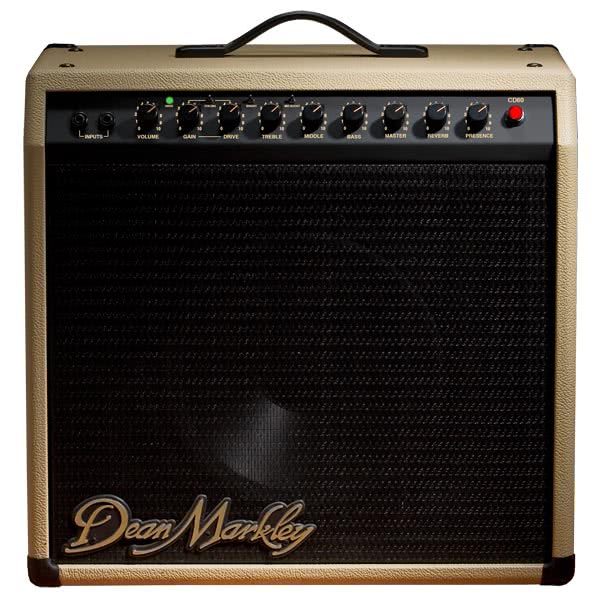
“My first guitar was a Vantage Avenger, that was the name of the guitar, and it was a humbucker two single coils and just a Fender-style whammy bar, maple fretboard, maple neck, and the first amp I had was a Dean Markley that was just a little brown amp and it was cool, but all of a sudden I saw a button on it that said ‘Drive’ and I had no idea what it did. When I pressed it, my whole world opened up.
“And between that and a Boss analog delay that I had, I started writing with that sound even from a very early age. My connection to gear in the beginning, I don’t think it was naïve, but it was certainly not as specific as you tend to get. It was cool to have an amp and a guitar, it wasn’t a big deal, right? And here I am, older and doing it professionally, I’m spoiled by options, but ultimately I can do whatever I need on a guitar and an amp. It’s just nice to have the ones that I’d like, right?”
Fetishise At Your Own Risk
“I think [gear is] only an overemphasized component if you start to fetishise it. I think any hobby becomes cork-sniffing after a while. I like effects pedals, I think they’re great, right? And I have a selection of pedals that I’ve accumulated, but there’s some people that are like, ‘Well, this delay and this distortion, and this one’s got the germanium resistors and this one’s got tungsten dick-kerfufflebuffers’ and all the shit that goes into it, ultimately it’s a rabbit hole that I think you can guide yourself down only because you enjoy the elitist elements of being the guy with the best gear.
“And in that sense, I think it’s not unhealthy, but incredibly fucking boring, because you’re not making music. It becomes more about having a solid gold guitar than one that’s playable. I try and steer clear from conversations and circumstances that fetishise anything, let alone gear, but with younger players, I mean, I don’t know if it’s overemphasized because there’s certainly a value to choosing your gear wisely and making sure of that, not only for the sake of what you’re trying to do musically, but for your investment, so that you’re not gonna have to replace it every three years.
“Like, a lot of what happens now is you get C&C guitars that come out looking brilliant and don’t hold up. Maybe that’s why I like Telecasters so much? They’re the equivalent of an ironing board. They do the job, man.”
The Songs Morph Around The Gear
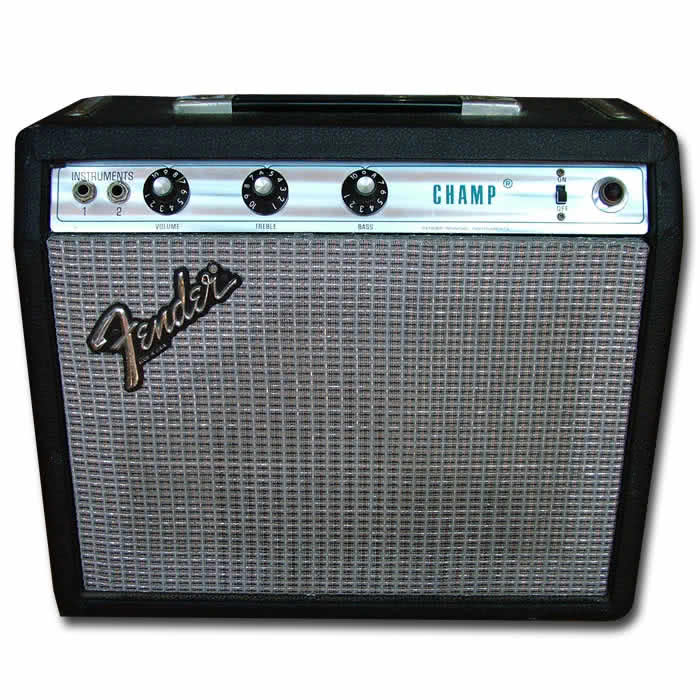
“Z2 was a record that was fraught with technical and emotional hurdles. Primarily, I just didn’t want to make a record. It was one of those moments that I was just compelled to do it, because I was finally in a position that I could. So I didn’t really spend too much time with the gear on that. I used Mesa and I used Framus, which is my live rig.
“But I think the most recent example of the guitar influencing the record was on Casualties of Cool where I bought an older Tele. I mean, I’ve got a few Teles, but I wanted an older Tele, like a blonde, typical-looking, ‘50s Tele. So I found a reissue that was really nice and done properly, and between that and a little Fender Champ, the songs morphed around that.
“And that has been the case with me whether it’s guitars, or amps, or themes, or puppets, or studio gear. I think there’s a lot of things in my career that have been influenced by gear. Does that mean that I fetishise it on some level? I like to think not, but you take inspiration from where you can.”
The Weirdest Thing I Ever Got For Free
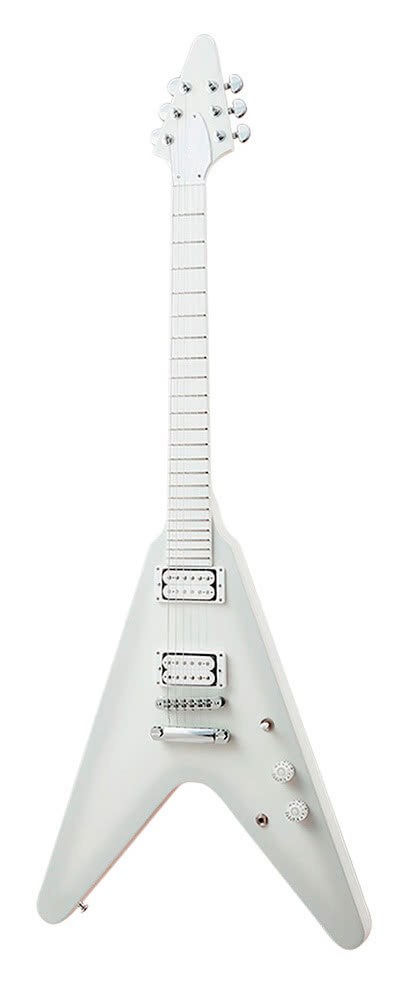
“The weirdest thing I’ve gotten [from a company] was actually last week, Framus sent me a 20-pound Flying V with lasers and fog machines, made out of chrome, and dude, the thing is just a Leviathan, right? It’s really amazing.
“It’s just one of those weird situations, you get all this gear now and it’s interesting to see what I’m getting. It’s now beyond what I’m using for my professional needs and now it’s like I’m getting all these peculiar instruments. Strandberg just sent me a guitar. It’s like this headless, eight-string thing. I mean, it’s a great guitar, don’t get me wrong, but again, it’s a far cry from a Telecaster.”
The Weirdest Thing I Ever Paid Money For
“Well, I think I bought a 1956 Fender Champ, like an eight-inch speaker, one knob thing, recently. And I had to trade a whole bunch of gear for it, because I couldn’t afford just to buy an amp at that time, but I had a bunch of excess gear just from doing this for 25 years, so I traded this guy a whole whack of gear and got this beat-up old furry suitcase of an amp. I guess, practically, the cost was pretty high, but it’s cool, man. It sounds like a blown-out trumpet.”
“I Want To Do A Tele”

“[With the Peavey Devin Townsend custom guitar], I think the situation was awkward for both parties, because when we first started, I remember saying, ‘Look, I don’t want to do a heavy metal guitar, I want to do a Tele. That’s where I’m at.’ But, it took me so long to decide what I want.
“Dude, it takes me for ever to decide what I want, in life and in gear, so a couple years ago I’m by there and they’re finally like, ‘Look, we’ve given you so much gear here, dude, we need to get some of this money back. So, we’re gonna put out a heavy metal guitar for you, if you’re cool with that’, which was contrary to what I thought it was gonna be, but it’s a really good guitar.
“It was too expensive for a Peavey line, so it didn’t do super well, but ultimately, the Peavey situation was a learning curve for both of us and we’re on good terms with each other now, so I can’t say that it was all for naught.”
The Guitars That Are Needed Have Already Been Made
“I think anything other than a Telecaster for me is just a variation on a theme. You know, I’ve been working on something with Framus that’s kind of like a Tele-Les Paul-Strat thing, maybe for the market. I mean, who knows? But ultimately, man, it’s debatable as to whether or not that’s necessary.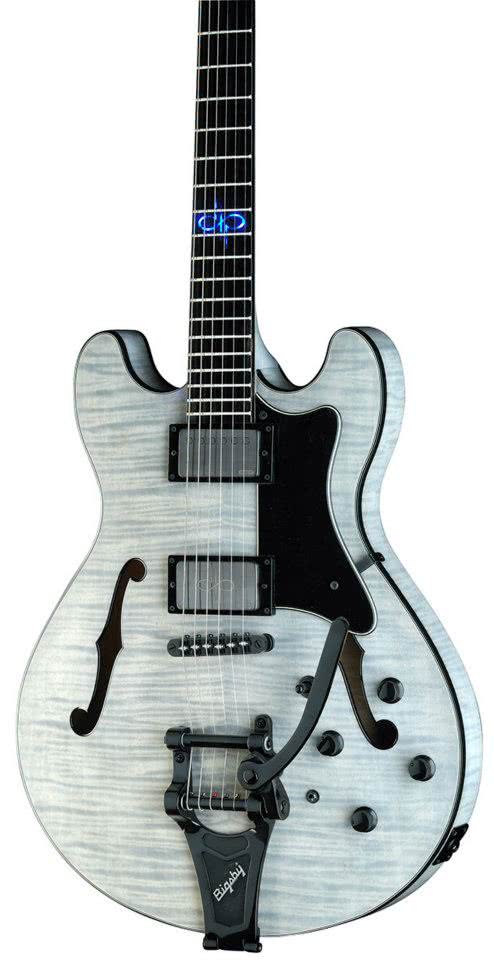
“I think the guitars that are needed on the planet right now have already been kind of made. I mean, everything else is gonna be a different variation on shape. The market demands that everybody reinvent the wheel, because there’s a certain pool of money that everybody needs to make every year, but if I do make a signature thing from here on out, it’ll probably be a lot more traditional than anything.
“But shit, man, the guitar I use more than anything else is just that Tele. It’s a plank of wood, you know? I like it. If you don’t have options then you don’t have to fuck around. You don’t have to spend all this time thinking about your gear. I want a good quality guitar for sure, but I don’t want to think about it. I think that’s my criteria for an instrument now, I want it to be something I can depend on, that I don’t have to think about, right?”
Pedal Board = Stress
“Unfortunately, because of the nature of how integral a part delays play in my sound, in order to achieve that [utilitarianism], it’s not as simple as I’d like it to be. But the pedal board for me has been something that I’ve been working on and honing for years and years and I think I’m in the ballpark with it now.
But, one of these sort of ironic frustrations — and it’s not really a frustration because it’s a great thing in some ways — is because of where I’m at at this point, I get sent a bunch of really awesome pedals from people saying, ‘Try this out, see if it works for your thing.’
“But I’ll just settle on something, I’ll be like, ‘Well, there’s the distortion I’m gonna use. There you go.’ And then you get something else that’s better and you go down that rabbit hole and then before you know it’s no longer like what my original vision was and you go back to the beginning. So, before you know it, your pedal board becomes this weird source of frustration, every element of it.”
“Things Irritate Me Until They Don’t”

“For me, my utilitarianism is essentially ‘Things irritate me until they don’t, and when they don’t they’re done.’ It’s not like a labour of love where I set up a pedal board and I lovingly go through it. It’s like, ‘Well, this table is now a liability because it broke and this pedal is now a liability because it takes up too much room or I don’t like how bright that blue light is or this is a great pedal but it’s fucking fluorescent orange or something.’
“All of these things that are of no consequence, but when you’re as easily irritated by it as I am… again, I don’t wanna think about it, so my pedal board is a lot more difficult than a guitar.
“With a Tele, or a Strat, I don’t have to think about it, it’s just ‘There’s my guitar, I can just write.’ With a pedal board, there’s so many more variables that piss you off. The process takes a little longer, but I’ve got it narrowed down: compressor, tuner, depending on the rig, a wah, a low gain pedal, a lead pedal, it all goes into a clean channel, two delays prior to it and then it splits the signal, one half of it goes to the amp the other half goes to an Axe-Fx. It’s a hundred percent wet, it goes through two speakers.
“But before you know it, it’s all more complicated than I’d like it, but it achieves the effect.”
Devin’s Z² double album is out now via HevyDevy

































